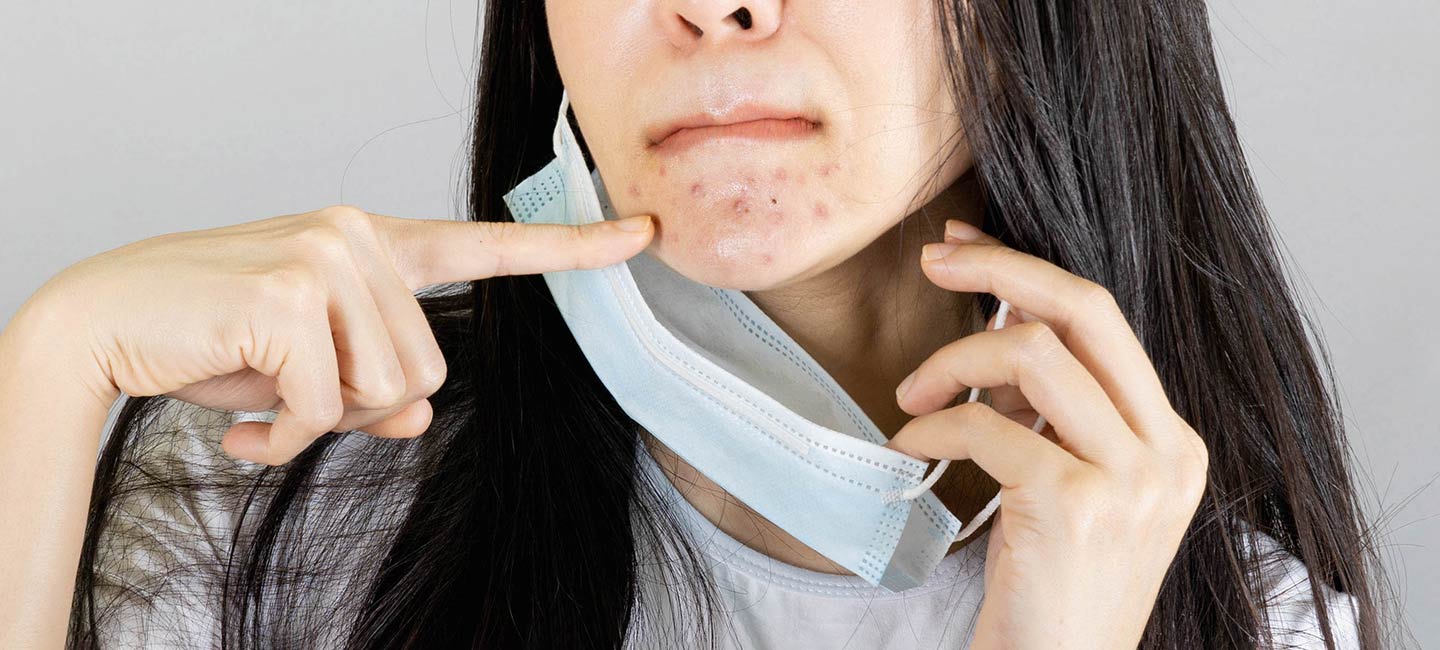5 Tips to Battle "Maskne"
Our daily lives have changed quite a bit in 2020 but one item that should be a part of your daily arsenal is a face mask. Medical experts say the cloth or disposable mouth and nose coverings help reduce the spread of COVID-19 and are an essential tool to reduce the spread of infection.
But with an increase in mask wearing comes a new problem – mask acne or “maskne.” Moffitt Cancer Center board certified dermatologist Dr. Lucia Seminario-Vidal said she is seeing more and more patients with skin conditions directly related to the protective coverings.
“Masks trap moisture and vapor close to the skin, disrupting its balance which can cause dryness and peeling or trigger peri-oral dermatitis, rosacea or acne,” Seminario-Vidal said. “It’s summer and as temperatures rise you sweat more, which means you need to make an extra effort to keep your mask clean.”

The longer you wear a mask or if that mask is tight fitting, the more likely you are to experience the symptoms of "maskne." So how can you prevent or treat it? Seminario-Vidal offers the following 5 tips:
Use the right material
If you have sensitive skin or skin that’s prone to breakouts, use a 100% cotton mask. It’s less allergenic than other materials. You should also avoid synthetic fabrics like nylon, polyester and rayon, since those are more likely to cause irritation and breakouts.
Cleanliness is key
Wash your masks regularly. Avoid wearing the same mask for multiple days to avoid bringing yesterday’s dirt and grime to today’s clean face. “Treat your mask as underwear,” Seminario-Vidal said. “Wash it frequently and keep it clean.”
Streamline your skincare routine
Don’t overcomplicate your skincare routine. Keep it simple by using a gentle soap or facial cleanser at home and hypoallergenic moisturizer, which can reduce inflammation and protect your skin. For the best results, apply moisturizer immediately after washing your face. Prevent moisturizer-related breakouts by using one formulated for your skin type.
When selecting a moisturizer, consider the following:
- Oily skin (or when weather is hot, humid): Gel moisturizer
- Dry to very dry skin: Cream moisturizer
- Normal or combination skin: Lotion
- Protect your lips by applying petroleum jelly
Remember your sun protection
Buy a cotton mask or bandana with a rating of UPF 50 or higher, or apply sunscreen after your moisturizer. Non-comedogenic sunscreens are preferred because they do no trigger acne. Apply at least 10 to 15 minutes prior to sun exposure. Use a broad-spectrum sunscreen with an SPF of 30 or higher. SPF 30 blocks 97% of the sun's UVB rays.
Call your doctor
If you are taking the precautions above but are still noticing "maskne" or other skin irritation, contact your dermatologist.



